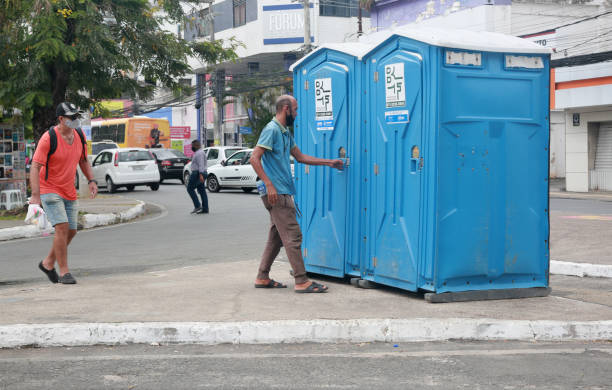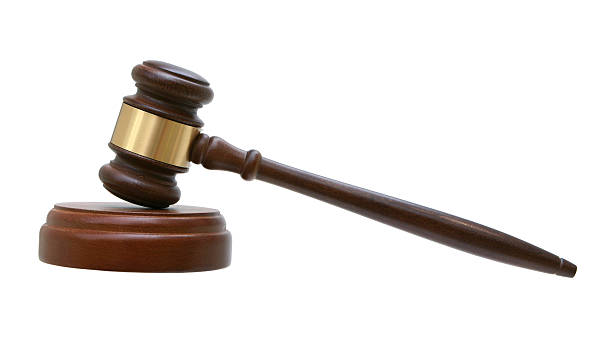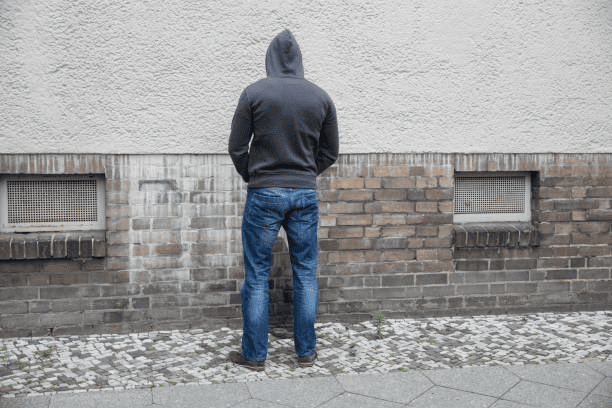Public urination is an offensive conduct and can lead to criminal charges. In the bustling cities and tranquil towns of Australia, maintaining public order and upholding societal standards is a shared responsibility. Among the various acts that can disrupt the peaceful coexistence of communities, public urination stands out as a particularly concerning issue.
What Does the Law Say?
A person commits an offence under Section 393A of the Crimes Act 1900 (ACT), if they are urinating in a public place, excluding designated restrooms. This constitutes an offence punishable by a fine of up to 10 penalty units. This offence is considered a strict liability offence, meaning that the prosecution does not need to prove intent; merely establishing the act of urination in a public setting is sufficient.
However, a valid defence exists to this offence under circumstances of sudden and extraordinary emergency. Section 41 of the Criminal Code 2002 outlines this defence. To successfully claim this defence, the individual must demonstrate that urinating in public was the only reasonable course of action in response to an urgent and unexpected situation.
In essence, while public urination is generally prohibited in Australia, there is a legal provision for individuals who find themselves in exceptional circumstances and have no other viable options. In South Australia, public urination or defecation is prohibited in all public areas (within municipalities or towns) unless designated for such purposes. Penalties are as follows for:
- Maximum Penalty: $250
- Expiation Fee: $80
Section 4 of the Summary Offences Act (NSW) makes it an offence to act in an offensive manner ‘in or near, or within view or hearing from, a public place or a school’.
How Can Public Urination Be Prevented?
Preventing public urination requires a multi-pronged approach involving individual responsibility, community awareness, and effective local authority action.
Individual Responsibility:
- Plan ahead: Before venturing out, identify public restrooms and plan your route accordingly within a reasonable time. A better option is to use the bathroom before going outside your home.
- Seek assistance: If caught urinating in a situation without access to a restroom, politely ask for assistance at nearby establishments or seek help from a police officer. Many of these establishments like restaurants will usually let non-customers use their bathrooms.
- Respect public spaces: Refrain from using public areas, such as alleyways or parks, as makeshift restrooms. This is not only unsanitary but it is disrespectful to other people who pass through public areas.
Community Awareness:
- Educate and engage: Encourage open discussions about the negative impacts of public urination and promote awareness of the legal consequences.
- Support initiatives: Collaborate with local organisations to implement public toilet improvement projects and advocate for increased public restroom availability.
- Promote responsible behaviour: Encourage individuals to make responsible choices and avoid putting themselves or others at risk.
Local Authority Action:
- Increase accessibility: Expand the availability of public restrooms, particularly in high-traffic areas and nightlife districts.
- Improve maintenance: Ensure public toilets or restrooms are well-maintained, clean, and safe to use.
- Enforce regulations: Implement strict enforcement measures to deter public urination and hold offenders accountable.
- Partner with community organisations: Collaborate with local groups to develop and implement effective prevention strategies.

Defences Against Public Urination Charges
Several defences can be invoked to dismiss a public urination charge. These include:
- Mistake of fact: The accused held a genuine belief, based on reasonable circumstances, that their actions were not in violation of the law.
- Reasonable excuse: The accused had a justifiable reason for their actions, such as an urgent medical condition.
- Private location: The act occurred in a secluded area not readily accessible to the public.
- Involuntary conduct: If a person urinates due to mental illness or a medical condition, they may be able to defend themselves in a public urination charge.
- Lawful authorisation: The accused had valid authorisation to urinate in a specific location.
- Necessity or duress: The accused was compelled to urinate in public due to unavoidable circumstances or coercion.
Case Study That Includes Public Urination
In the case of R v Barden [2015], Jackson Barden pleaded guilty to knowingly participating in the supply of a prohibited drug. The drug was 8.28 grams of Nexus (4-bromo-2,5-dimethoxyethylamine) in tablet form. His additional offences included:
- Possession of ecstasy and cocaine
- Dealing with suspected proceeds of crime; and
- Offensive behaviour (urinating on a train platform)
According to the facts, on April 1, 2015, at Woolooware Railway Station, police observed Barden urinating on the platform. Upon arrest, he threw a plastic bag containing drugs and cash on the ground. Subsequent searches uncovered Nexus tablets, ecstasy capsules, and cocaine.
The sentencing judge considered the seriousness of the offence, emphasising the potential harm to the community caused by drug supply. While acknowledging Barden’s positive steps toward rehabilitation, the judge imposed a suspended sentence of one year’s imprisonment, along with a one-year good behaviour bond and specific conditions.
Additionally, $200 in cash found at the scene was forfeited to the Crown. The judge ordered the destruction of the drugs and granted leave for the immediate disposal of the forfeited property.
Final Takeaways
Public urination, while seemingly insignificant, poses a significant concern for Australian communities. Its impact extends beyond aesthetics, affecting public health, safety, and the overall quality of life. Addressing this issue requires a multi-pronged approach that engages individuals, communities, and local authorities.
In conclusion, tackling public urination in Australia demands a collective effort that balances individual rights with public well-being. By fostering a culture of responsibility, awareness, and effective action, communities can create a more hygienic, safe, and aesthetically pleasing environment for all.

How Can JB Solicitors Help?
Facing an accusation of public urination can be a distressing and embarrassing experience. The legal ramifications of such a charge, including fines and potential criminal convictions, can have far-reaching consequences. In such instances, seeking legal advice from a trusted and experienced lawyer is crucial to protect your rights and ensure a fair outcome.
JB Solicitors, with their expertise in criminal law, understands the complexities of public urination offences. We can provide comprehensive legal guidance tailored to your specific situation. Our team can also diligently review evidence, identify potential defences, and advocate for your best interests throughout the legal process.
Remember, an accusation of public urination is not a conviction. You have the right to challenge the charges and present your case in court. JB Solicitors is committed to upholding your rights and ensuring that your voice is heard.
Contact us today for more information about public urination laws and public nuisance offence matters.
